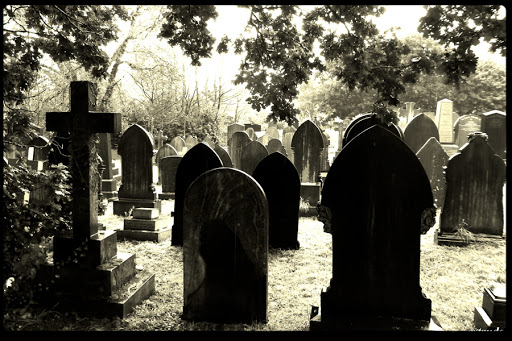A curiosity, from the BBC:
The Orange Order has asked its members to stop using the term ‘RIP’ to express grief or sympathy after a death.
It said the phrase is unbiblical, un-Protestant, and a form of superstition connected to Catholicism. RIP is an abbreviation of ‘rest in peace’ or in Latin, ‘requiescat in pace’. In a publication marking the 500th anniversary of the Reformation, the order called on Protestants to stop using the phrase. Wallace Thompson, secretary of Evangelical Protestants Northern Ireland, wrote a Facebook post on which the article was based. He told the BBC’s Talkback programme: “Observing social media, we have noticed that the letters RIP are used a lot by Protestants, and by some evangelical Protestants.” Mr Thompson explained that for him, ‘RIP’ is a prayer and he did not encourage prayers for the dead. “From a Protestant point of view, we believe, when death comes, a person either goes to be with Christ for all eternity, or into hell. “That’s what we believe the gospel to be and in this 500th anniversary year of the Reformation, I think Luther, when the scales fell off his eyes, realised that it was all by faith alone, in Christ alone, the decision is made during life, on this earth, so that when death comes it has been made and no decision has been made after death,” he said.
About The Orange Order:
The Orange Order is the largest Protestant organization in Northern Ireland with at least 75,000 members, some of them in the Republic of Ireland. Its origins date from the 17th century battle for supremacy between Protestantism and Catholicism. Prince William of Orange, originally of the Netherlands, led the fight against Catholic King James. He eventually took the throne in England and his final victory over James at the Battle of the Boyne in Ireland in 1690, sealed the religion’s supremacy in the British Isles. In 1795, a clash between Protestants and Catholics at the Battle of the Diamond near Loughgall, County Armagh, led to some of those involved to swear a new oath to uphold the Protestant faith and be loyal to the King and his heirs, giving birth to the Orange Order. Since then, the order’s principles and aims, and those of similar organisations it is related to, have changed little. It regards itself as defending civil and religious liberties of Protestants and seeks to uphold the rule and ascendancy of a Protestant monarch in the United Kingdom.
Meantime, Wikipedia offers some background on the famous phrase:
This verse has been found inscribed in Hebrew on gravestones dating from the 1st century BC, in the graveyard of Bet Shearim. It speaks of the righteous person who died because he could not stand the evil surrounding him. A recapture of these words, read as “come and rest in peace,” has been transferred to the ancient Talmudic prayers, in a mixture of Hebrew and Aramaic of the 3rd century AD. It is used to this day in traditional Jewish ceremonies. …The phrase was not found on tombstones before the eighth century. It became ubiquitous on the tombs of Christians in the 18th century, and for High Church Anglicans, Methodists, as well as Roman Catholics in particular, it was a prayerful request that their soul should find peace in the afterlife. When the phrase became conventional, the absence of a reference to the soul led people to suppose that it was the physical body that was enjoined to lie peacefully in the grave.This is associated with the Christian doctrine of the particular judgment; that is, that the soul is parted from the body upon death, but that the soul and body will be reunited on Judgment Day

